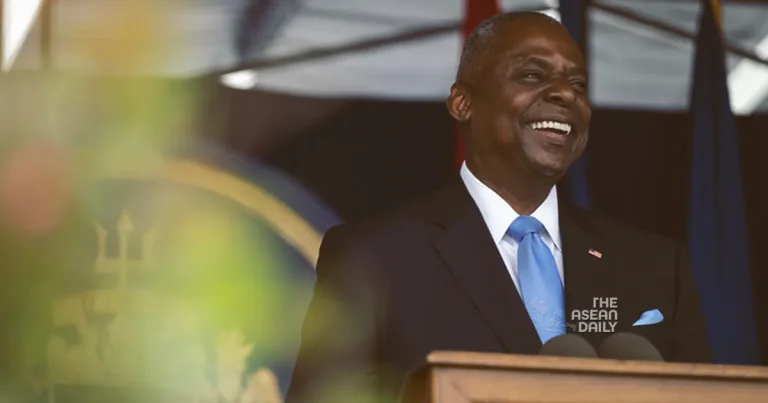26-5-2024 (PHNOM PENH) In a move that could reshape regional dynamics, US Defence Secretary Lloyd Austin is scheduled to make an official visit to Cambodia, one of China’s closest allies in Southeast Asia, following talks with his Chinese counterpart at an annual security conference in Singapore.
The impending visit, announced by the US Defence Department in Washington on Friday, underscores the delicate balance the United States is seeking to strike as it navigates its strained relationship with Beijing while strengthening ties with regional partners.
Austin’s diplomatic itinerary will take him to Singapore, Cambodia, and France next week, with his stop in Cambodia on June 4th being particularly significant. It will mark the first visit by a US Defence Secretary since Austin attended a gathering of Asian defence ministers in the Kingdom in November 2022.
“We are now working with the US Embassy in Phnom Penh to arrange his meetings with the Cambodian leaders,” Cambodian Foreign Ministry spokesperson Chum Sounry confirmed on Saturday. “The visit will be another important step to advance the Cambodia-US relations.”
The visit comes at a pivotal juncture, as Cambodia’s new Prime Minister, Hun Manet, took over the reins of power from his father, Hun Sen, who ruled the country for 38 years. While Hun Manet has largely maintained his father’s policies thus far, his ascension to power has sparked speculation of a potential reset in US-Cambodian relations.
Adding an intriguing layer to the dynamic is the fact that both Austin and Hun Manet are graduates of the prestigious US Military Academy at West Point – Austin in 1975 and Hun Manet in 1999, when he became Cambodia’s first cadet at the academy.
The timing of Austin’s visit to Cambodia is particularly noteworthy, as it follows his planned talks with his Chinese counterpart, Admiral Dong Jun, at the Shangri-La Dialogue in Singapore. This encounter is part of ongoing efforts by the United States to mend ties with China, which have frayed in recent years due to Beijing’s aggressive policies toward Taiwan and its expansive territorial claims in the South China Sea.
Cambodia’s close ties with China have long been a source of concern for Washington. The Kingdom is widely regarded as Beijing’s closest ally in Southeast Asia, and the US has voiced apprehensions over a naval base in southern Cambodia, on the Gulf of Thailand, which has been upgraded with Chinese assistance and could potentially serve as a strategic outpost for China’s navy.
While Cambodian officials have dismissed such concerns, asserting that their country maintains a neutral defence posture and denying any special basing privileges for China, the issue remains a delicate one in the broader geopolitical chess game unfolding in the region.
Austin’s diplomatic mission to Cambodia, coupled with his stopover in France to attend events commemorating the 60th anniversary of the D-Day landings, underscores the intricate balancing act the United States is navigating on the global stage.




